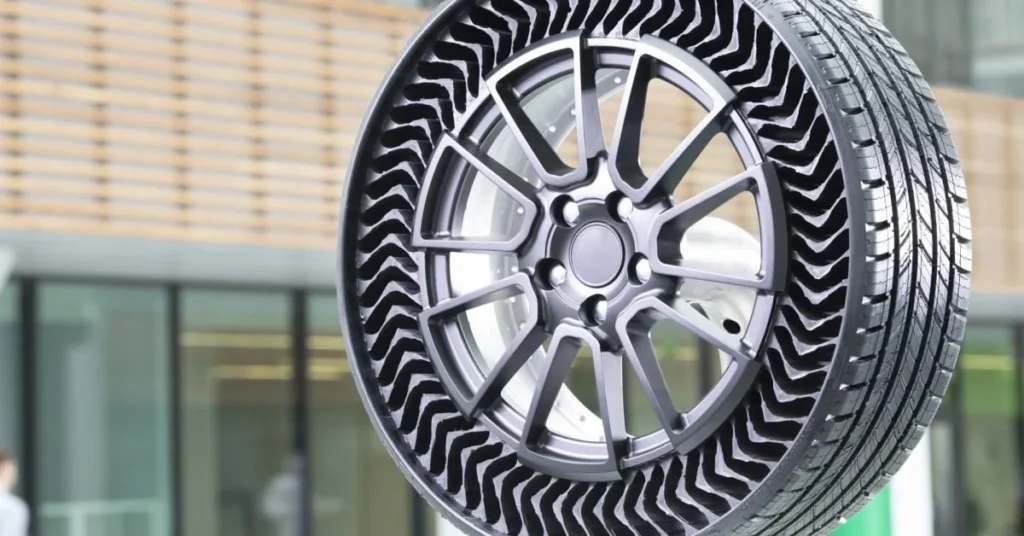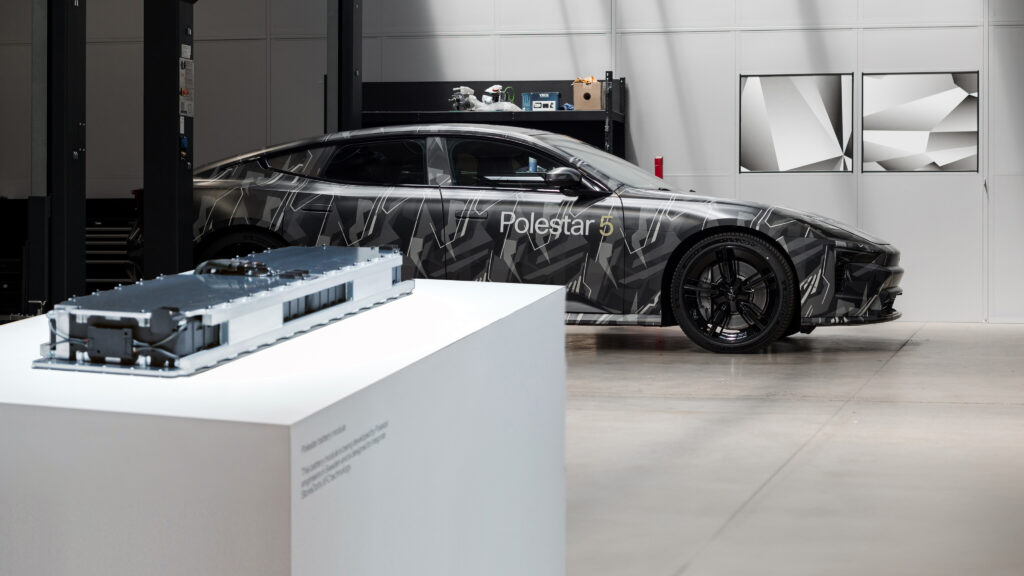Last week, Michelin and Tesla talked about trying Uptis (Unique Puncture-Proof Tire System), a tire technology that doesn’t need air. According to Florent Megenaux, CEO of Michelin, these talks happened as recently as April 2024. They could lead to a partnership that changes the auto business by making flat tires and blowouts impossible in passenger vehicles.
Uptis tires are puncture-proof. This prevents 200 million tires from being thrown out due to holes or low air pressure, extending the automotive industry.


The Uptis tires feature Michelin’s Tweel technology, used on ATVs, skid-loaders, and lawnmowers.
Since 2021, Michelin has been working with General Motors (GM) to try Uptis tires on a fleet of Chevrolet Bolt EVs. The tires could be on sale to the public as early as the end of 2024.
Read More: Alejandro Agag discussing Racing’s New Frontier
Michelin’s Uptis: Long-Lasting Tires for a Sustainable Future
One of the best things about Uptis tires is that they might last a long time. Michelin says that these tires could last up to three times longer than regular tires. This would cut down on both the loss of tires and the pollution caused by tread wear. These tires have also worked well at speeds of up to 210 km/h (130 mph), which means they can be used on high-speed vehicles like police cars.
Not only are Uptis tires lighter than regular tires, but they are also better at cutting through air resistance. Initial tests on electric vehicles (EVs) have been good, which suggests that these tires without air could make vehicles more fuel-efficient by lowering drag and weight.
This novel technique would allow deeper treads in some weather and reuse old tires, making them more functional and durable.
Customers can afford Uptis tires because they’re expected to cost around the same as run-flat tires.
The Uptis is part of Michelin’s VISION concept, which emphasizes no airflow, connectivity, 3D printing, and 100% sustainability. Michelin and GM are collaborating with officials to gain the Uptis design federal approval.
FAQs
As of June 29, 2024, there is some conflicting information. Initial reports suggested discussions were underway, but Michelin has since denied this. Talks may occur in the future, but there’s no official confirmation yet.
Airless tires, also called non-pneumatic tires, are designed to function without needing compressed air. They typically use a structure that combines a flexible outer shell with a spoke-like inner core to maintain stability and support the vehicle’s weight.




